Finding the best headphones for piano players can be a daunting task. With so many options to choose from, it can be difficult to decide which ones are the best fit for you and your instrument. That’s why we’ve put together this comprehensive guide to help you make the right decision when it comes to selecting the best headphones for piano.
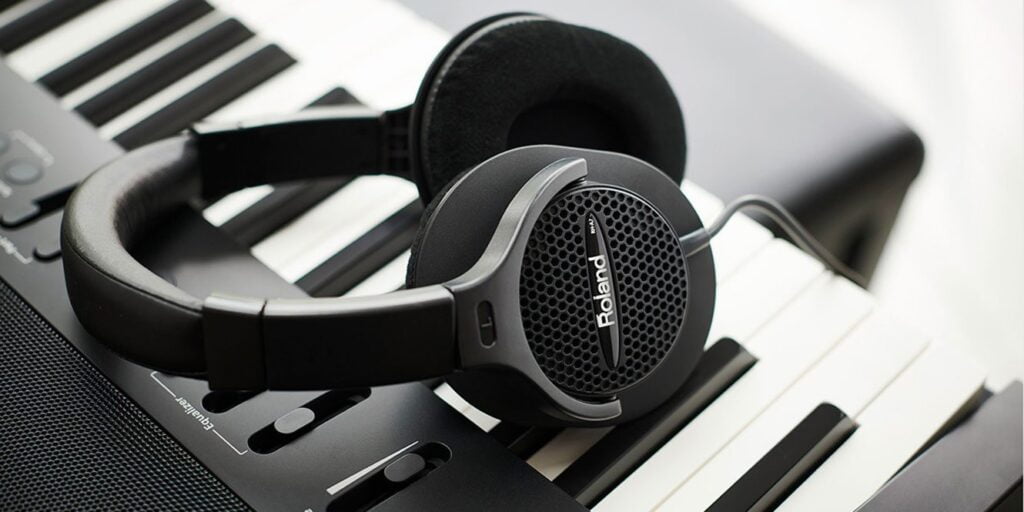
We’ll cover important factors such as sound quality, comfort, noise isolation, and more to help you find the perfect set of headphones that will help you get the most out of your piano playing experience.
What do you know about piano headphones?
When it comes to playing the piano, sound quality is of utmost importance. While standard headphones may work for casual listening, they may not provide the best sound quality for piano playing.
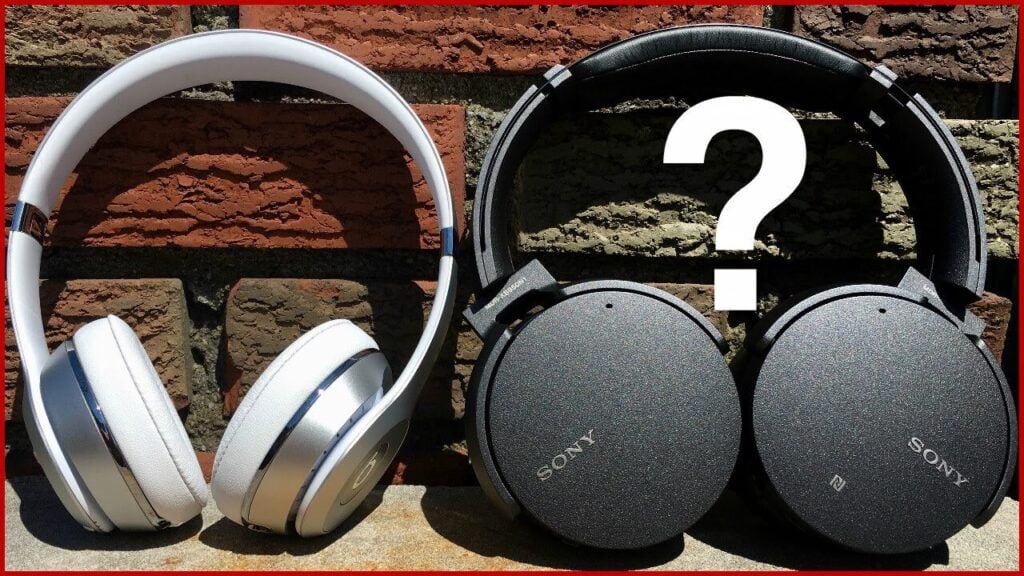
Specifically, you should look for headphones that offer neutral well-balanced sound with even frequency response, as these are best suited for the full range of sounds that a piano can produce. Popular bass-oriented headphones such as Beats and Sony’s Extra Bass line should be avoided, as they will likely detract from the natural sound of your instrument.
Why do you need piano headphones?
Piano headphones are essential for both beginners and pianists as they provide privacy for practice, enabling players to concentrate without disturbing others. They also offer superior audio clarity compared to built-in speakers, aiding in discerning nuances in playing and improving musicality.
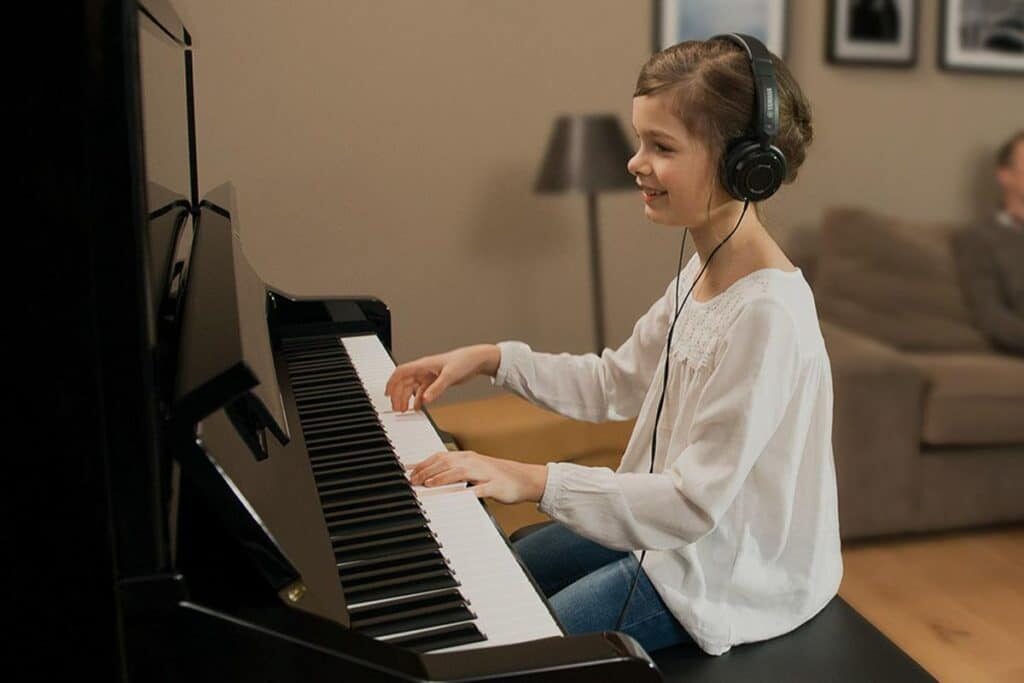
Additionally, headphones are useful for recording and playback, ensuring accurate sound reproduction without interference. With customizable features such as adjustable volume and EQ settings, piano headphones enhance the overall practice and performance experience.
What to look for when choosing piano headphones?
Choosing the right headphone types for you
When selecting the best headphone types, it’s important to consider your specific needs. At the end of the day, the right type of headphone is the one that suits your needs.
Should I choose wired or wireless?

When it comes to selecting the right headphones for playing the piano, wired headphones are typically the best option. While wireless headphones can be convenient and give you freedom of movement, they can cause a delay in sound which can disrupt your performance. This is because wireless headphones rely on Bluetooth or other wireless connections which can introduce lag in the audio.
If you are serious about getting the best headphones for digital piano playing, consider getting fitted for custom headphones. Custom headphones are designed to fit exactly the shape of your ears, providing optimal sound quality and comfort. Additionally, many companies offer a range of customization options such as detachable cables and replaceable earpads.
Over-ear, on-ear and in-ear?

Over-ear headphones, also called ‘circumaural’ headphones, are the biggest type of headphones and fit completely around the ears. They tend to be the most comfortable and provide the best sound quality since they create a seal around the ears that isolates sound.
On-ear headphones, or ‘supra-aural’ headphones, are smaller than over-ear headphones and rest on top of the ear rather than around them. They’re less comfortable than over-ear models but still provide some noise isolation. On-ear headphones are a good choice if you need portability, like if you plan to take your piano headphones with you when traveling.
In-ear headphones, or ‘intra-aural’ headphones, are the smallest and most portable headphone type. They fit directly into your ear canal and tend to be quite discreet, which makes them ideal for use in live performance settings. In-ear headphones offer decent sound quality and noise isolation.
Which one is better? Closed-back or open-back?

Open back headphones can be a great choice for piano players looking to get the full sound of their instrument, as the openings by your ears let in some of the sound coming from the keys. However, the downside of open back headphones is that they let in more sound from the outside world, so if you’re playing in a busy environment, you may not be able to fully appreciate the nuances of your playing.
For this reason, closed-back headphones are ideal for piano players looking to practice in a noisy environment with better sound isolation and sound clarity.
Noise cancellation
Noise-canceling headphones are perfect for anyone who wants to use their keyboard or digital piano without the background noise from your environment. Active noise-cancelling headphones are designed to use electronics to cancel out unwanted sound, while passive noise-reduction techniques use insulation to reduce background noise.
While active noise-cancelling headphones can be a bit more pricey, they will provide you with a much more focused listening experience.
Impedance

Another important thing to consider when choosing your piano headphones is impedance. Impedance is measured in Ohms and indicates how much power is needed for the headphones to produce sound. Low impedance headphones (8-32 Ohms) require less power to deliver high audio levels than headphones with higher impedance.
For digital pianos and keyboards, the optimal impedance range is between 32-65 Ohms. In this case, you may need a headphone amp to boost the volume level of your piano headphones if they have a higher impedance.
Comfort and Cost
Piano headphones come in a range of shapes and sizes, with varying levels of comfort and prices.
When it comes to comfort, look for headphones with cushioned ear cups and adjustable headbands or other additional features that make them comfortable to wear for extended periods of time. Also make sure they don’t pinch or cause discomfort when worn.
As far as cost is concerned, think about what features you need and how much you are willing to spend. The combination of the best materials and the highest level of craftsmanship is the reason why there is such a big difference in price.
In other words, you get what you pay for: top-of-the-line sound, unparalleled comfort and amazing design. So, don’t be afraid to invest in the best headphones on the market, or the best headphones within your budget.
8 top picks for piano headphones in 2024
Discover the perfect companion for your piano practice with our 8 top picks for piano headphones. Drawing from our personal opinions, these picks offer exceptional sound quality and comfortable fits, ensuring an immersive and enjoyable musical journey.
#1 Audio-Technica ATH-M50x
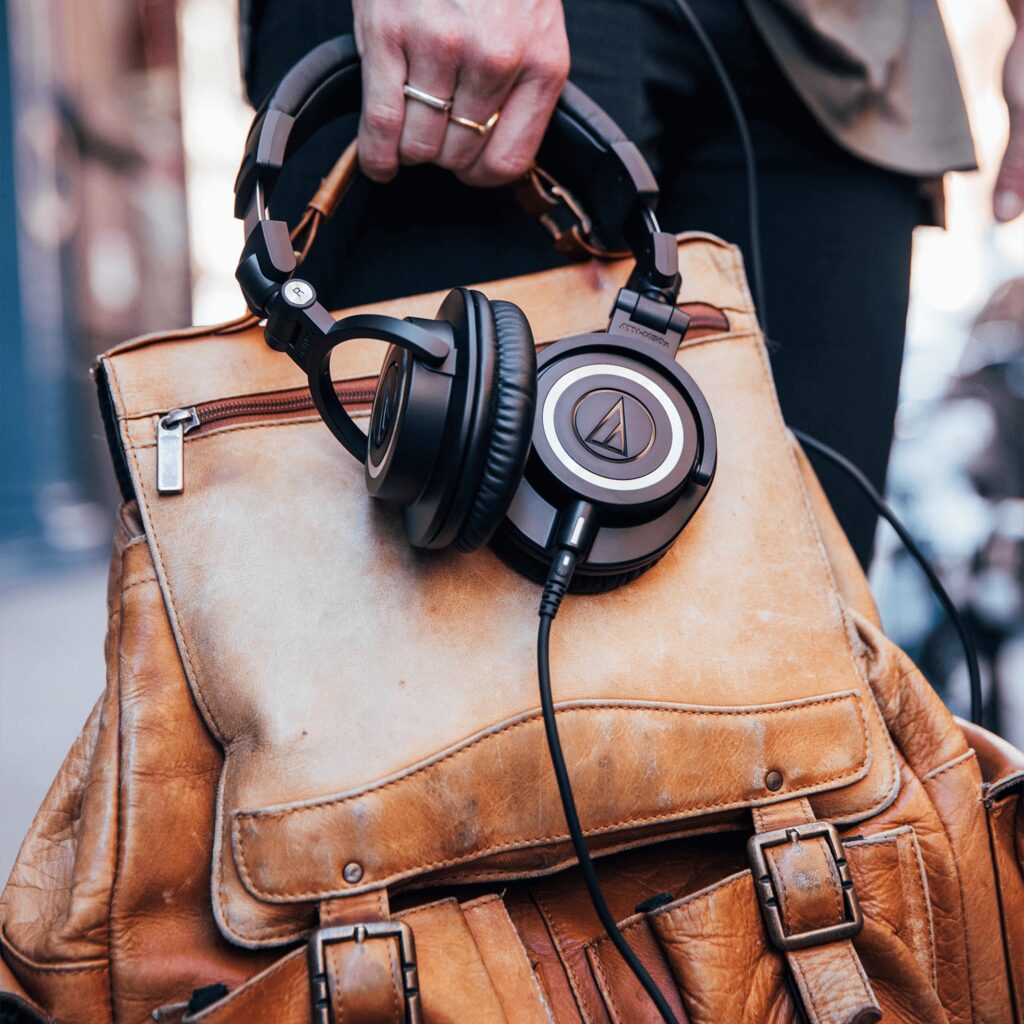
The Audio-Technica ATH-M50x is widely regarded as a flagship model among professional headphones, renowned for its exceptional audio performance and versatility across various genres, including classical piano. Its critically acclaimed sound signature offers a balanced and detailed sound profile, allowing pianists to hear every nuance and subtlety in their playing.
The over-ear design provides excellent noise isolation, ensuring a focused practice environment free from distractions. Additionally, the ATH-M50x is praised for its robust build quality and comfort, featuring swiveling ear cups and a padded headband that make it suitable for extended use. Its detachable cable adds convenience and flexibility for musicians on the go.
Despite some users noting a slight emphasis on bass frequencies, the overall audio fidelity and comfort make the ATH-M50x a top choice of piano headphones for serious pianists and audio professionals alike.
#2 Beyerdynamic DT 770 Pro

As a seasoned piano player, I’ve recently come across the Beyerdynamic DT 770 Pro and must say they’re a game-changer for piano practice. The noise cancellation, rated at about 97%, ensures a distraction-free environment for focused practice sessions. What’s more, the velour-covered ear cups provide exceptional comfort, even during long hours of practice.
Additionally, the balanced weight of the headphones makes them easy to wear for extended periods without causing fatigue. The long cord offers flexibility for moving around the studio, while the dual plug capabilities make them versatile for use with various equipment setups.
Overall, I can confidently give these piano headphones a 5-star rating and highly recommend them for any serious piano player looking to elevate their practice sessions.
#3 Sennheiser HD 280 PRO
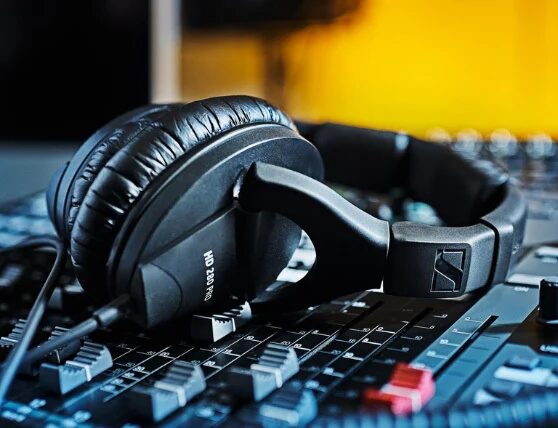
The Sennheiser Professional HD 280 PRO Over-Ear Monitoring Headphones are highly regarded by customers for their excellent sound quality and overall build. Many users appreciate the elevated bass response, which adds depth to the piano’s lower register, while the clear and well-defined midrange ensures every note is heard with precision.
The headphones are praised for their solid construction, providing a durable and accurate sound reproduction that meets professional standards. Moreover, it is affordable and comfortable for extended wear during piano practice sessions.
However, some users have expressed concerns about the headphones’ weight, performance in certain scenarios, cord length, and fit, highlighting areas where improvements could enhance the overall user experience. Despite these minor drawbacks, the Sennheiser HD 280 PRO remains a popular choice among pianists seeking reliable and high-quality piano headphones for their practice needs.
#4 Yamaha HPH-150B Open-Air Neutral Palette

The Yamaha HPH-150B Open-Air Neutral Palette Headphones surpass expectations, providing a significantly louder, clearer, and more immersive sound experience compared to some other brands of the same segmentation. Despite initially appearing flimsy, they offer surprising durability and comfort.
The minimal sound leakage ensures an undisturbed listening experience, although their effectiveness in blocking external noise remains untested. With crystal-clear sound reproduction, balanced bass, and exceptional mids and highs, these headphones offer incredible value at $100.
While they may require gentle handling due to their construction, they remain an excellent choice for discerning listeners seeking high-quality audio performance.
#5 Sony MDR-7506
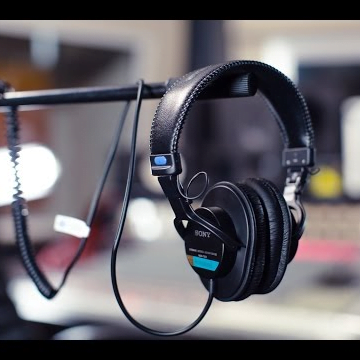
These piano headphones impressed me with their reliable and precise sound reproduction, making them ideal for accurately discerning piano nuances. Their lightweight and foldable design adds to their portability, making them convenient for travel and practice on the go.
However, some users have reported discomfort during extended practice sessions due to the ear cups. While the headphones offer excellent sound quality, the non-detachable cable limits flexibility in certain setups.
In general, the Sony MDR-7506 headphones are professional-grade and dependable closed-back headphones that deliver excellent sound quality. Users can expect reliability in terms of comfort, performance, and sound reproduction, making them a satisfying choice for piano practice.
#6 Roland RH-5
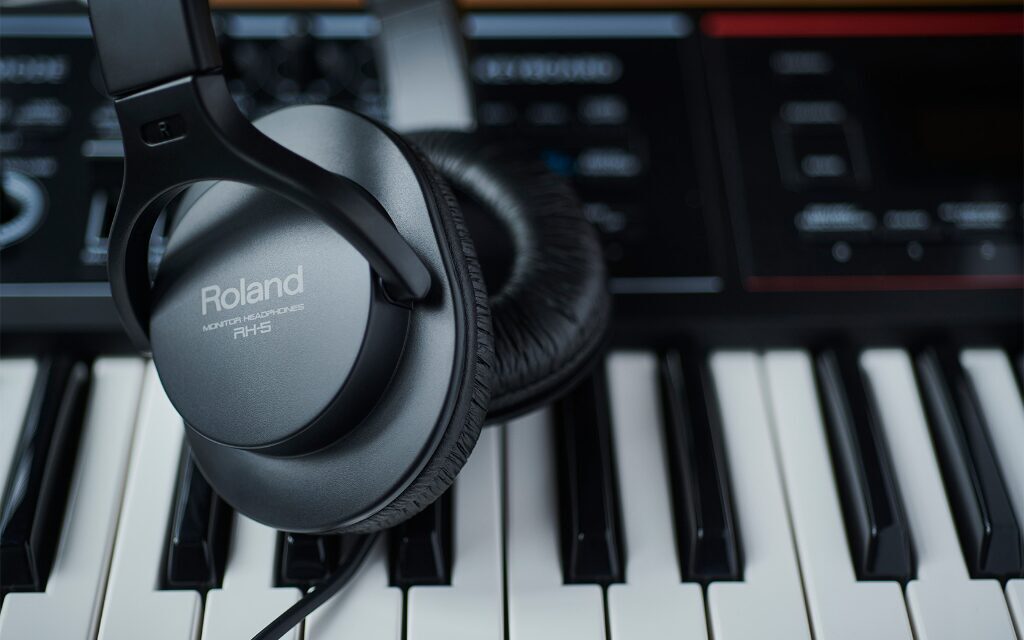
The Roland RH-5 headphones are an excellent choice, particularly for piano practice, offering a secure fit and impressive sound quality at a budget-friendly price. They provide a comfortable alternative to earbuds, staying in place during vigorous workouts.
I’ve found them to be a worthy replacement for my previous pair, as they securely hook around my ears and are lightweight. Despite not being noise-canceling, the sound quality is impressive. I highly recommend them as one of the best choices of piano headphones for their unbeatable quality at this price point.
Additionally, I appreciate the superb sound reproduction and minimal sound leakage. The padding on the top and ears adds to the comfort, making them a well-rounded and reliable piece of equipment for any musician or gym enthusiast.
#7 AKG Pro Audio K72
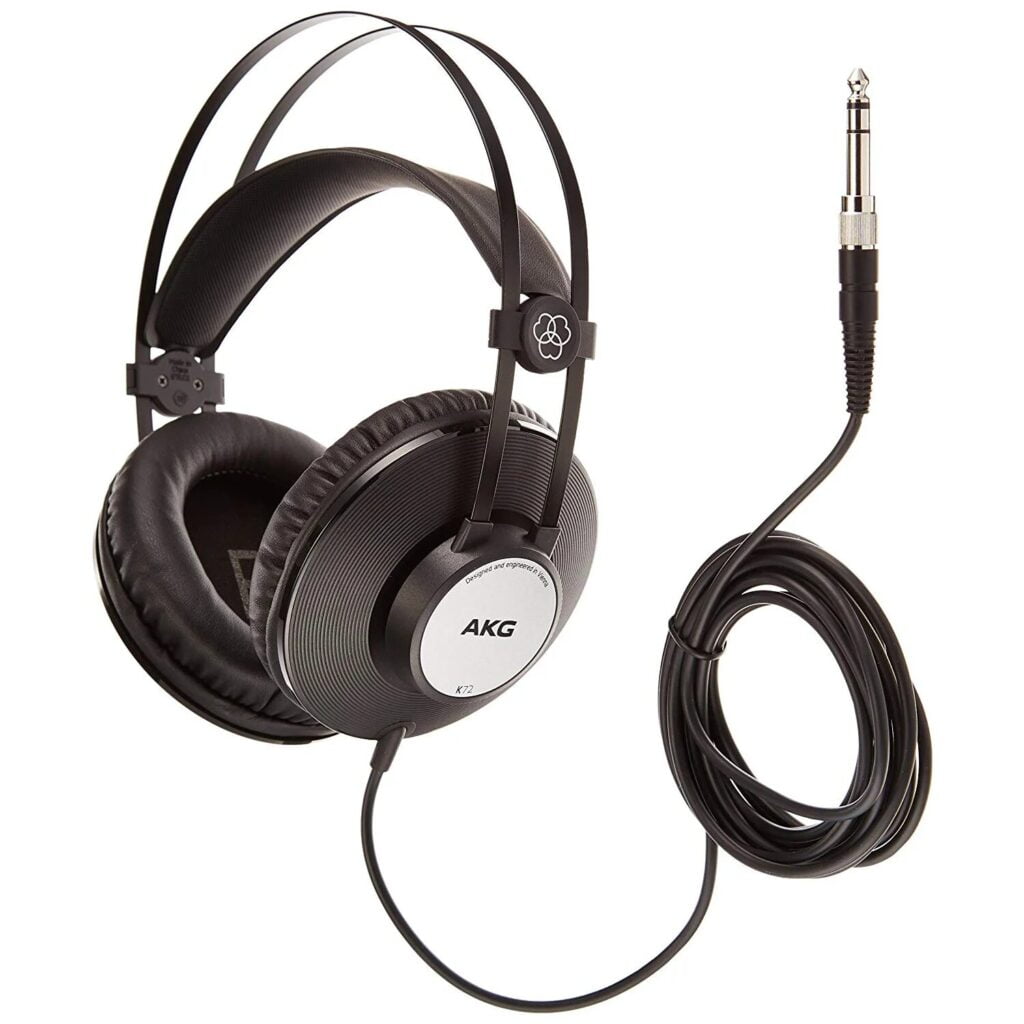
The AKG Pro Audio K72 headphones have exceeded my expectations. While they do have a noticeable clamp factor, I believe this will lessen with time.
In terms of comfort, they are surprisingly lightweight and offer minimal pressure on the head. Not to mention that the sound quality of these headphones is fantastic. They offer a punchy and detailed bass, which was a pleasant surprise considering their neutral reputation. Despite lacking portability features, such as an in-line mic or controls, the focus on pure music playback is admirable.
Additionally, the headphones’ aesthetics are stunning, despite their affordable materials. Overall, I highly recommend the AKG K72 for anyone seeking clear, detailed sound reproduction without unnecessary frills.
#8 Shure SRH440A Over-Ear Wired Headphones
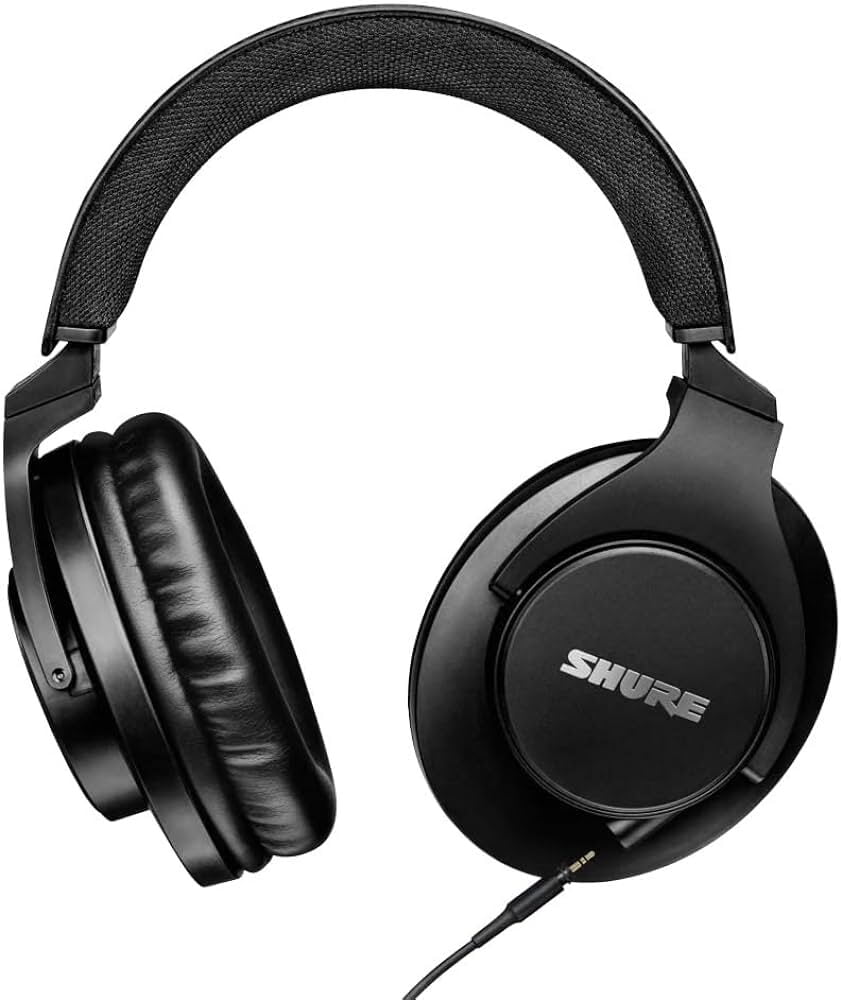
The Shure SRH440A Over-Ear Wired Headphones immediately appealed to me with their claim of flat response ideal for professional studios, affordability, and removable locking cable, a feature that can prevent potential issues in the future.
I was impressed by their sturdy build and comfortable fit, making them suitable for long piano practice sessions. The sound quality exceeded my expectations, with crisp highs, warm mids, and extended bass, allowing me to hear every nuance in my piano playing.
Despite their tight grip, they offer excellent isolation from outside noise, creating a focused practice environment. While the headband and earpads provide overall comfort, extended use may lead to some discomfort. Overall, the SRH440A headphones offer exceptional value for their price, making them an excellent choice as piano headphones without compromising on quality.
Conclusion
When selecting the top pick for piano headphones, prioritize comfort and sound quality to enhance your playing experience. Whether you opt for closed-back, open-back, or in-ear headphones, ensure they fit comfortably and deliver excellent sound reproduction tailored to the nuances of piano music. Remember, regardless of your choice, comfort and sound quality are paramount for optimal performance and enjoyment.
Frequently Asked Questions
Why is my headphone getting hot and how to fix it?
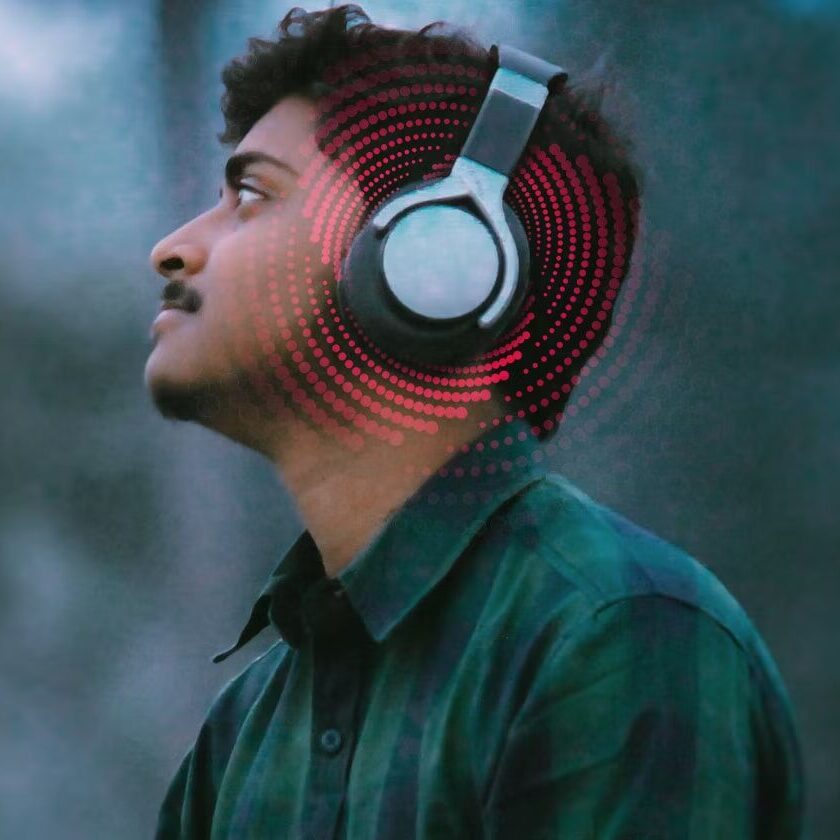
It’s normal for headphones to heat up after prolonged use. The build-up of heat in your headphone can be caused by a few factors, including the friction from contact between internal parts, electrical resistance, and obstructions that block ventilation.
In some cases, the heat could also be generated from the sound coming through the speaker. To prevent the buildup of heat in your headphone, ensure that there is proper air circulation inside the headphone. Make sure to clean out any debris or dust that may be blocking the vents.
If your headphone is still getting too hot, you may need to replace certain components or invest in a new pair of headphones with adequate ventilation and more breathable ear pads. Investing in quality headphones for digital piano or keyboard will help prevent your headphones from overheating.
Why are headphones glitching? What to do when this happens?
Headphones, especially the ones designed for piano or keyboard playing, can experience glitches due to a variety of factors. Glitches are typically caused by interference from radio frequencies, electric current, and other sources.
Headphones that are used to connect to a digital piano, keyboard, or synthesizer are particularly vulnerable to glitches as they are transmitting sound through both analog and digital signals. The best headphones for digital piano players should feature a strong signal and noise-cancelling capabilities to reduce glitching.
Glitches can also be caused by physical damage to the headphone cord. The cord should be checked for signs of wear and tear and regularly inspected for frayed wires or breaks in the connection. Additionally, the headphone jack should be firmly plugged into the device it is connected to. If there are any signs of loosening or fraying in the cord, it’s time to replace the headphone cable.
If none of these solutions solve the problem, it might be time to invest in new headphones for digital piano playing. There are a variety of options available, ranging from budget models to top-of-the-line models designed specifically for keyboardists and pianists.
The best headphones for digital piano playing should offer clear sound and accurate frequency response. With the right set of headphones, you can make sure that your piano performance is glitch-free!